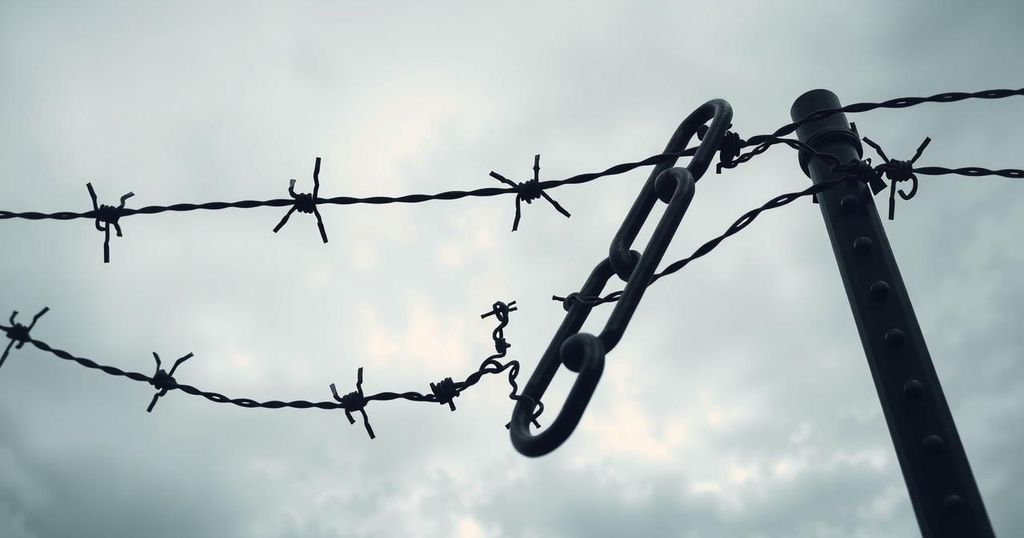Captive North Korean Soldiers Reveal Pyongyang’s Role in Ukraine Conflict
In January, Ukrainian forces captured two North Korean soldiers, confirming North Korea’s direct involvement in the war against Ukraine. The soldiers, young and inexperienced, were located in a gray zone and exhibited a willingness to surrender. Their capture by Ukraine revealed persistent suspicions about North Korean forces fighting alongside Russia, a significant aspect of the ongoing conflict.
In January, Ukrainian forces captured two North Korean soldiers, confirming North Korea’s involvement in the ongoing conflict against Ukraine. The soldiers were young, well-disciplined, yet inexperienced in combat. Their apprehension during separate missions on January 9 revealed what Ukraine, South Korea, and the United States had long suspected: North Korean troops had been fighting alongside Russian forces, particularly in the Kursk region, a claim previously unacknowledged by Moscow.
Ukrainian special forces had aimed to capture a North Korean soldier for months, despite North Korean troops often opting for self-destruction to avoid captivity. Intelligence had indicated three North Korean soldiers lost in a dangerous area known as the gray zone. As the Ukrainian forces approached, they encountered enemy fire, resulting in the death of two North Koreans, with one injured soldier left to be rescued.
The Ukrainian soldier who participated in the rescue recalled the intense moment. Upon reaching the wounded North Korean, who was disoriented and limited in armament, compassion ensued as the Ukrainian forces provided first aid. During their interaction, the soldier revealed he had served four years in the military, having been conscripted at the age of sixteen.
Despite the uncomfortable circumstances, the Ukrainian soldier expressed empathy for his captive. After securing the soldier’s medical needs, the team was ambushed while evacuating, but successfully transported him to safety. The soldier reassured him, saying, “Everything will be fine, you will live.” This experience showcased complex feelings toward a foe caught in a tumultuous situation.
Another North Korean soldier was inadvertently captured during an assault on a Ukrainian position earlier that same day. As Ukrainian forces faced relentless attacks, they spotted a lone North Korean soldier behaving erratically, raising suspicion about his status. As the situation unfolded, the recognition of his nationality became clear, prompting a delicate interaction to ensure his peaceful surrender without raising alarms among Russian forces.
During the encounter, the North Korean soldier appeared uncertain of his predicament, dropping his weapons at the soldiers’ gestures of reassurance. However, apprehension escalated when he attempted to harm himself, which the Ukrainians successfully thwarted. After transportation arrangements were made, both captives were transferred to Ukraine’s security service for interrogation, revealing their lack of awareness regarding their deployment to fight in Ukraine.
This article highlights the significant and troubling development in the ongoing war between Ukraine and Russia concerning North Korea’s involvement. The apprehension of North Korean soldiers provides concrete evidence of their presence on the battlefield alongside Russian forces, a fact that has been the subject of speculation from various governments. The soldiers’ experiences highlight the complexities of war, including issues of conscription and the exploitation of troops in foreign conflicts, particularly among young, inexperienced fighters from North Korea.
The capture of two North Korean soldiers by Ukrainian forces underscores the deeper dimensions of the conflict in Ukraine, revealing the direct participation of North Korean troops fighting alongside Russian units. The experiences of these soldiers reflect the struggles of young conscripts caught in an unforgiving war, ultimately serving to illuminate the human aspect of this geopolitical crisis. As the conflict evolves, the implications of such engagements on international relations continue to merit close scrutiny.
Original Source: www.washingtonpost.com




Post Comment